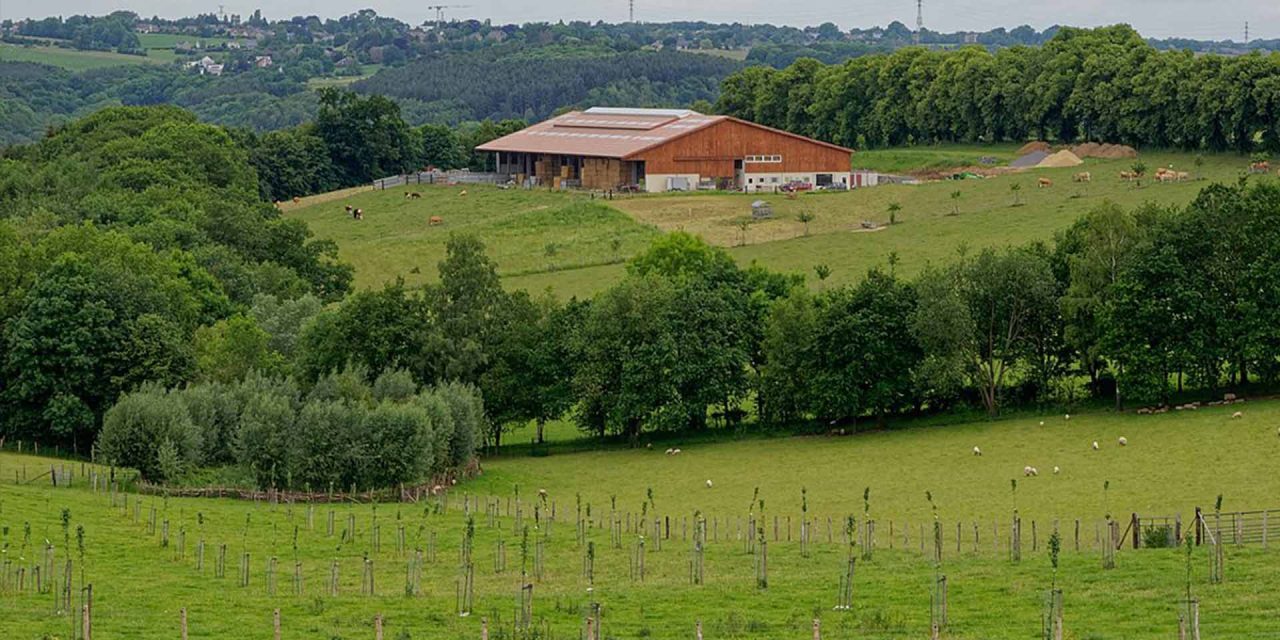
The number of the world’s farms to halve by 2100

New University of Colorado Boulder research shows the number of farms globally will shrink by half by the end of the 21st Century
The study is the first to track the number and size of farms year-on-year, from the 1960s and projecting through to 2100, and suggests the average doubling in size of existing farms will be to blame, posing significant risks to the world’s food systems.
The study shows that even rural, farm-dependent communities in Africa and Asia will experience a drop in the number of operating farms.
Zia Mehrabi, assistant professor of environmental studies at CU Boulder, said: “We see a turning point from widespread farm creation to widespread consolidation on a global level, and that’s the future trajectory that humanity is currently on.
“The size of the farm and the number of farms that exist are associated with key environmental and social outcomes.”
To evaluate the global state of farming, Mehrabi used data from the UN Food and Agricultural Organization on agricultural area, GDP per capita and rural population size of more than 180 countries to first reconstruct the evolution of farm numbers from 1969-2013 and then to project those numbers through 2100.
His analysis found that the number of farms around the world would drop from 616 million in 2020 to 272 million in 2100. A key reason: as a country’s economy grows, more people migrate to urban areas, leaving fewer people in rural areas to tend the land.
- Farming more seaweed to be food, feed and fuel
- Bee biodiversity improved by ‘flower strips’ on farms
- Biodiversity challenged by nutrient use on farms
- Agriculture responsible for more than 90% of tropics deforestation
Reap what you sow
A decline in the number of farms and an increase in farm size has been happening in the United States and Western Europe for decades. The most recent data from the US Department of Agriculture indicates there were 200,000 fewer farms in 2022 than in 2007.
Mehrabi’s analysis found that a turning point from farm creation to widespread consolidation will begin to occur as early as 2050 in communities across Asia, the Middle East, North Africa, Oceania, Latin America and the Caribbean. Sub-Saharan Africa will follow the same course later in the century, the research found.
It also shows that even if the total amount of farmland doesn’t change across the globe in coming years, fewer people will own and farm what land there is available. The trend could threaten biodiversity in a time where biodiversity conservation is at the forefront of the agenda.
Mehrabi said: “Larger farms typically have less biodiversity and more monocultures. Smaller farms typically have more biodiversity and crop diversity, which makes them more resilient to pest outbreaks and climate shocks.”
And it’s not just biodiversity; food supply is also at risk. Mehrabi’s previous research shows the world’s smallest farms make up just 25% of the world’s agricultural land but harvest one-third of the world’s food.
Moreover, fewer farms mean fewer farmers who may carry with them valuable Indigenous knowledge dating back centuries. As farms consolidate, that knowledge is replaced by new technology and mechanisation.
Corporate farm ownership
Just as a diverse investment portfolio performs better than one that is not diversified, having diversity in the world’s food source portfolio is beneficial in the long run.
Mehrabi said: “If you’re investing in today’s food systems with around 600 million farms in the world, your portfolio is pretty diverse.
“If there’s damage to one farm, it’s likely the impact to your portfolio will be averaged out with the success of another.
“But if you decrease the number of farms and increase their size, the effect of that shock on your portfolio is going to increase. You’re carrying more risk.”
There are also upsides to the shift in corporate farm ownership - the paper points out that consolidation in farming can lead to improved labour productivity and economic growth with a larger workforce in non-farm employment and improved management systems.
One of the biggest benefits of farm consolidation is improved economic opportunity for people, and the ability to choose their own career path within or outside of the agricultural sector.
But those future farm workers may need more support as suicide rates in the agriculture industry are among the highest rates by occupation in the US.
Mehrabi said: “Currently, we have around 600 million farms feeding the world, and they’re carrying eight billion people on their shoulders. By the end of the century, we’ll likely have half the number of farmers feeding even more people.
“We really need to think about how we can have the education and support systems in place to support those farmers.”
By raising awareness of global agricultural trends, Mehrabi hopes his analysis will lead to policies that ensure biodiversity conservation, maintain climate resilience, preserve Indigenous knowledge, and provide incentives to improve the rural economy in countries around the world.
The research is published in Nature Sustainability.
Image: Credit: Pierre-Jacques DESPA, CC BY-SA 4.0 <https://creativecommons.org/licenses/by-sa/4.0>, via Wikimedia Commons.















